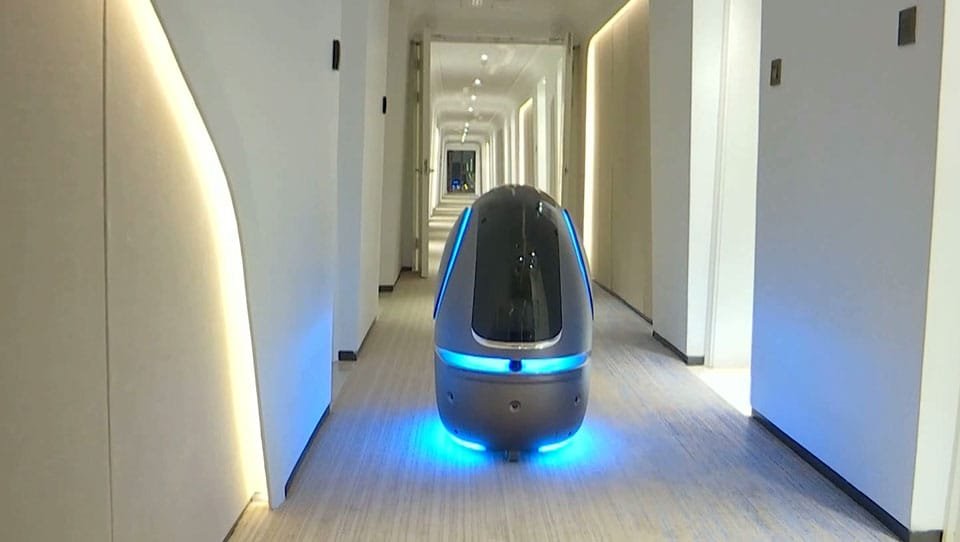The Future of Smart Accommodations: A Win-Win for Guests and Owners
In a world where technology relentlessly propels us forward, the future of the hospitality industry is set to be smarter than ever before. Welcome to the era of smart accommodations, where state-of-the-art controls and devices will redefine the experience for both guests and property owners.

Smart Guest Rooms and Getting Smarter
The dream of today’s sophisticated hotel guests, as well as hoteliers, is a single interface that adjusts room lighting, controls the TV, sets the room temperature, and even orders
room service.Total guest room control from a single device is fast becoming a reality at today’s most tech-forward hotels, and smart guest rooms are the pinnacle of experiential customization.
Some examples are the use of in-room sensors, whether for basic things like occupancy, temperature, water usage and lighting, or more creative hospitality applications. Decibel sensors, for example, can notify hotel staff of loud noises that might be disturbing guests.
Trends and Market Research
Just Google “research growth and trends of smart accommodation” and you will be dazzled by the number of research reports and without mentioning or link to all of them, there are similarities. I will just use one example to quote from https://www.alliedmarketresearch.com/smart-hospitality-market-A08160
The global smart hospitality market size was valued at $18.8 billion in 2021, and is projected to reach $133.7 billion by 2031, growing at a CAGR of 22% from 2022 to 2031.
In this article it is summarized that:
A smart hotel is one that has disruptive technologies such as artificial intelligence and the internet of things implemented in it. These technologies are used to improve administration, efficiency, and control within the hotel’s management as well as to provide better services to visitors. Additionally, a smart hotel also provides incredible opportunities to provide customization. For instance, TVs may be remotely configured to address visitors by name, and visitors can modify the room’s settings via a central control point. The numerous gadgets may then automatically produce such circumstances due to IoT technology.
Global numbers are difficult to localize but let’s have a look what are the “smart drivers” referred to in different reports?

Enhanced Guest Experience
Research highlights how smart accommodations greatly enhance the guest experience. These establishments utilize technology to provide guests with an array of amenities and conveniences, creating an unforgettable stay. Here are some key benefits:
- Personalized Control: Smart controls allow guests to tailor their environment to their preferences, adjusting lighting, temperature, and even entertainment systems with the touch of a button or a simple voice command.
- Seamless Check-In and Check-Out: Smart accommodations often offer contactless check-in and check-out processes, reducing wait times and minimizing human interaction, a valuable feature in today’s health-conscious world.
- Accessibility: Smart devices can be programmed to cater to guests with disabilities, making accommodations more inclusive and comfortable for a wider range of visitors.
- Concierge Services: With the help of virtual concierge services, guests can easily access information about local attractions, request room service, or book reservations without leaving their room.
Energy Efficiency and Sustainability
Smart accommodations are not only designed to enhance the guest experience but also to minimize their environmental impact.
- Smart Thermostats: Automated temperature control systems optimize energy usage by adjusting heating and cooling according to occupancy and external weather conditions, reducing energy bills and carbon footprints.
- Energy Monitoring: Smart devices help track energy consumption, allowing owners to identify and rectify areas of wastage, further contributing to sustainability efforts.
- Waste Reduction: By providing in-room tablets for guests to manage their stay and order services, properties reduce paper usage and waste, demonstrating a commitment to eco-friendly practices.
Operational Efficiency and Cost Savings
Property owners and managers also stand to benefit significantly from the adoption of smart accommodations.
- Remote Monitoring and Control: Smart devices enable property owners to monitor and control various aspects of their accommodations remotely. This includes checking room occupancy, adjusting thermostats, and even addressing maintenance issues promptly, reducing operational costs.
- Enhanced Security: Smart security systems, such as smart locks and surveillance cameras, bolster the safety of guests and property, reducing the risk of theft or unauthorized access.
- Increased Revenue: The enhanced guest experience provided by smart accommodations can result in higher occupancy rates, better guest reviews, and ultimately, increased revenue.
Conclusion
The era of smart accommodations is upon us, offering a myriad of benefits to both guests and property owners. Research has highlighted how these establishments redefine the hospitality experience, offering personalized comfort, energy efficiency, sustainability, and operational efficiency. As the hospitality industry continues to embrace these innovations, it’s evident that smart accommodations are not just a trend but a transformative force shaping the future of hospitality.
Whether you’re a traveler seeking the utmost convenience or a property owner looking to optimize your operations, smart accommodations are undoubtedly the way forward, promising a brighter, more connected future for the world of hospitality.

